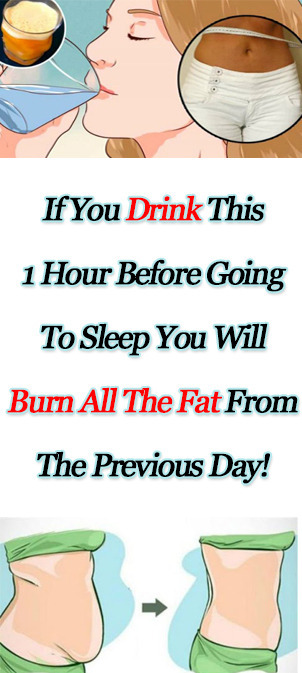A review of 13 studies found that regular resistance exercises performed 2-3 times a week for an average of one hour improved sleep quality. It also found that resistance exercises decreased anxiety and depression, which could be a factor in improving sleep. However, it is not recommended to do vigorous exercises such as running or interval training within one hour of bedtime.
A review of 23 studies found that healthy adults who performed high-intensity exercise too soon before bed had difficulty falling asleep and experienced poorer sleep quality. "These natural short sleepers, even sleeping between around six hours, have no negative health consequences, are not sleepy and work well while awake," he explains. Several studies show that sleep deprivation (i.e., regularly less than 7 hours of sleep a night) is a risk factor for obesity. A Nurses' Health Study found an association between those who slept the least and having the highest BMI and greatest weight gain.
One reason may be a disruption in appetite hormones that regulate feelings of hunger versus satisfaction . A preference for foods high in fat and carbohydrate has been observed. The risk of hunger also increases simply by being awake longer, which prolongs the time from the last meal eaten to bedtime. Insufficient sleep also can trigger the "reward" areas in your brain to crave high fat, high caloric foods.
Obstructive sleep apnea —Symptoms of OSA include snoring or gasping for air that causes interruptions in sleep and prevention of good-quality sleep. Sleep apnea also causes oxygen levels to drop during sleep, which can pose a stress on the heart, brain and other organs. People with OSA may not be aware that they are awakening frequently in the night, but do not get refreshed sleep, feeling excessively sleepy or tired during the day. Continuous positive airway pressure devices may be prescribed, which provides pressurized air to the nose and throat, preventing the upper airway from collapsing.
Another common treatment is dental devices that move the jaw forward and increasing the airway size. Obesity is a risk factor for OSA because carrying extra weight, particularly in the neck area, can contribute to obstructed breathing passages. About 70% of adults with OSA have obesity, and a significant improvement in OSA is seen with weight reduction.
OSA is a risk factor for insulin resistance, hypertension, type 2 diabetes, cardiovascular disease, and early mortality. While sleep requirements vary slightly from person to person, most healthy adults need seven to nine hours of sleep per night to function at their best. And despite the notion that our sleep needs decrease with age, most older people still need at least seven hours of sleep. Since older adults often have trouble sleeping this long at night, daytime naps can help fill in the gap. Stage three of the sleep cycle stages, slow-wave sleep , is a crucial part of your cognitive functioning.
It plays a major role in memory consolidation and brain restoration. Because of its importance for your overall health, you must increase your amount of deep sleep by allowing yourself to have enough total sleep time each night. Additionally, exercise and a healthy diet are a couple of different methods you can try to help increase your slow-wave sleep. Horne's research shows that people can cut down their regular sleep to about six hours a night, plus a short nap during the day, as long as they do it gradually. In one study, he asked people who regularly slept seven to 8.5 hours a night to shorten their sleep by going to bed a certain amount of time later each night.
Volunteers started by pushing back their bedtime one hour during the first week, and then pushed it back by 1.5 hours for the next three weeks. After doing this and waking up at the same time each morning, people were able to successfully function—and get high-quality sleep—on just six to 6.5 hours of sleep each night. Insomnia—This condition is defined as the inability to sleep or stay asleep. An individual may have a hard time falling asleep, or may sleep but then awaken in the early morning and be unable to return to sleep. Short-term insomnia can be caused by stress or traumatic events .
Insomnia often can be treated with behavioral therapies, although sometimes sleep medications are prescribed. Studies have shown that slow-wave sleep is facilitated when brain temperature exceeds a certain threshold. It's believed that circadian rhythm and homeostatic processes regulate this threshold. An unusually low, short-term carbohydrate diet in healthy sleepers promotes an increase in the percentage of slow-wave sleep.
This includes a production in the percentage of dreaming sleep , when compared to the control with a mixed diet. It's believed that these sleep changes could very well be linked to the metabolism of the fat content of the low carbohydrate diet. In addition, the ingestion of antidepressants and certain SSRI's can increase the duration of slow-wave sleep periods; however, the effects of THC on slow-wave sleep remain controversial. Total sleep time in these instances is often unaffected due to a person's alarm clock, circadian rhythms, or early morning obligations. So, are you sending your child off to bed early enough?
If those numbers are surprising to you, you're not alone. Working and single parents, especially, are often forced to get by on 5, 6, or even fewer hours of sleep each night. This is likely impacting your own social and mental functioning, as well as increasing your risk for other health problems.
It might be tempting to think that your children can also get by with less sleep than they need, or that they should be able to cope fairly well with a few skipped hours here and there. However, all children thrive on a regular bedtime routine. Regular sleep deprivation often leads to some pretty difficult behaviors and health problems—irritability, difficulty concentrating, hypertension, obesity, headaches, and depression.
Children who get enough sleep have a healthier immune system, and better school performance, behavior, memory, and mental health. About one-third of American adults do not get enough sleep each night, according to the Centers for Disease Control and Prevention. Short sleep duration in adults is defined as less than 7 hours of sleep in 24 hours.
About 40% of adults report unintentionally falling asleep during the day at least once a month, and up to 70 million Americans have chronic sleep problems. Because of the public health burden of poor sleep health, achieving sufficient sleep in children and adults was included as a goal in the Healthy People 2020 goals. Each stage of sleep in your sleep cycle offers different benefits.
However, deep sleep and mind and mood-boosting REM sleep are particularly important. You can ensure you get more deep sleep by avoiding alcohol, nicotine, and being woken during the night by noise or light. While improving your overall sleep will increase REM sleep, you can also try sleeping an extra 30 minutes to an hour in the morning, when REM sleep stages are longer. Not getting enough sleep is detrimental to both your health and productivity. But results from one study impress just how bad a cumulative lack of sleep can be on performance. The kicker is the people who slept six hours per night thought they were doing just fine.
Adequate sleep is an essential part of a healthy lifestyle and can have a positive impact on the lungs, kidneys, metabolism and weight control. If you're chronically sleep-deprived, it can also affect your immune function, disease resistance, sensitivity to pain, mood and brain function. Recent studies have revealed that too much as well as too little sleep increases the risk of premature death.
Low levels of immunity triggered by lack of sleep slow down the body's natural defenses against microorganisms, thus increasing the risk of contracting various infections. Most healthy older adults age 65 or older need 7-8 hours of sleep each night to feel rested and alert. These changes can cause insomnia, or trouble sleeping. Human sleep deprivation studies seem to suggest that the principal function of deep sleep may be to give the brain time to restore itself from its daily activeness. An increase of glucose metabolism in the brain occurs as a result of tasks that require mental activity. Yet another function affected by slow-wave sleep is growth hormone secretion, which is always greatest at this stage.
Plus, it also creates both an increase in parasympathetic neural activity and a decrease in sympathetic neural activity. This stage often occurs early in the sleep cycle immediately following light sleep. Your heart rate and breathing are the slowest during this phase, and you are not easily awakened. Events of the day are processed and stored in your memory.
A lack of deep sleep can leave one feeling tired in the morning even if achieving an adequate duration of sleep. Engaging in intense physical activity before sleeping can affect your sleep quality as it raises your adrenaline levels, increases your heart rate and your core body temperature. As a result, your body may not be able to relax sufficiently to enter the phase of restorative sleep that is characterised by a lower core body temperature and a slower heart rate. The more vigorous your exercise is, the more likely it will affect your sleep.
If you must do something, stick to less intense activities (e.g. yoga) and always have a cool-down session. Truth is, there are many reasons to explain tiredness persists even after getting the recommended number of hours. One of the simplest explanations is that it could be due to your body requiring more rest than the average person. However, it is also likely that your tiredness is due to the lack of quality sleep at night, rather than the quantity of it. In fact, the things you do before bedtime can have an adverse effect on your sleep quality. Although the amount of sleep you get each day is important, other aspects of your sleep also contribute to your health and well-being.
Signs of poor sleep quality include not feeling rested even after getting enough sleep, repeatedly waking up during the night, and experiencing symptoms of sleep disorders . Improving sleep quality may be helped by better sleep habits or being diagnosed and treated for any sleep disorder you may have. There is no shortcut for a good night's sleep, says Alex Dimitriu, MD, double board-certified in Psychiatry and Sleep Medicine and founder of Menlo Park Psychiatry & Sleep Medicine. "The body goes through specific stages of sleep, which we refer to as sleep architecture," he explains.
Some health conditions can even cause sleep problems. Diabetes and prostate issues can contribute to sleep disturbance and make you fatigued.. The problem caused by these conditions is that you are being woken up to urinate many times through the night. Conditions such as congestive heart failure or kidney disease may cause sleep issues.
You may have trouble lying flat and getting comfortable enough to fall asleep. If you find yourself sleeping in a recliner or waking up many times throughout the night, it is important to talk to your doctor. He or she can make sure underlying health problems aren't causing your sleep issues. I've got a sleep tracker and I am low in deep sleep, am on a diet so its not that as its low sugar, low fat.. I exercise loads Inc cycling and walk an avg steps a day..
I will either crochet or watch TV before bed so I'm never on the net.. Not crocheting, laying in bed with lights off hours before bed.. Going late, going early, and I cannot get it right.. To see if that helps and a bedtime app for my little one. When I sleep with my girlfriend, I get the most amazing, restorative, inconceivably best sleep of my life. Despite the only time its ever happened is in the worst conditions for ideal sleep.
A hotel bed, with tropical summer heat, in a different time zone to throw off circadian rhythm, with no exercise that day, and a low carb diet. And despite 6-7 hours of sleep, it is the most well rested I've felt in my life, led me to naturally wake up without an alarm, didn't need to use melatonin to help myself fall asleep. When you slash your sleep hours, your body notices—even if you don't. In one famous sleep study, people cut down their sleep to just six hours a night.
For those who wonder, "is 6 hours of sleep enough? Although some people do well on 6 hours of sleep, many of them do not feel any better compared to those getting up to 8 hours of rest. In this fast-paced life that we live, many people only get 6 hours of sleep because of their busy schedule. We realize that there are not enough hours in the day for us to be able to do all of the work that we have, and that we often compromise our sleeping hours just to get things done.
Some do take a nap in between tasks to help restore their low energy levels, but it's never enough it seems to recoup the insufficient sleep that we get every night. Both women and men can improve their nighttime rest quality by adopting a few sleep best practices. Research shows that lack of sleep increases the risk for obesity, heart disease and infections. Throughout the night, your heart rate, breathing rate and blood pressure rise and fall, a process that may be important for cardiovascular health. Your body releases hormones during sleep that help repair cells and control the body's use of energy.
These hormone changes can affect your body weight. Sometimes, despite your best efforts, four hours of sleep is the best you can manage. Is there anything you can do to improve your sleep quality so you don't feel like a zombie the next morning? Luckily, yes—although it's no substitute for the real thing.
I went from 0 to 15 mins of deep sleep for about 1 year to over 1 hour for the last three weeks by not eating before bed (2 hrs.) and no carbs past 1 o'clock pm. I'm a little pissed I've read this in only one book and found nothing about laying off carbs at night on any site. I also started eating in a pm window and fall asleep at 10 of all these changes think it was mostly laying off the carbs after my noon meal that increased my deep sleep. Deep sleep stages are also known as delta sleep or slow wave sleep. It's very hard to wake someone during this stage. It's also the most important sleep stage as it refreshes you the most and reduces your need for sleep.
That's why if you nap for too long during the day you don't feel as sleepy that night. Also, during this stage, your body and muscles are being restored by growth hormones. Making better use of your waking hours is another way to thrive on less sleep. Try exercising in the afternoon, says Sigrid Veasey, a professor at the Center for Sleep and Circadian Neurobiology at the University of Pennsylvania's Perelman School of Medicine. This will raise your body temperature and then cool it down by bed time, helping you fall asleep more quickly and sleep more deeply through the night.



























No comments:
Post a Comment
Note: Only a member of this blog may post a comment.